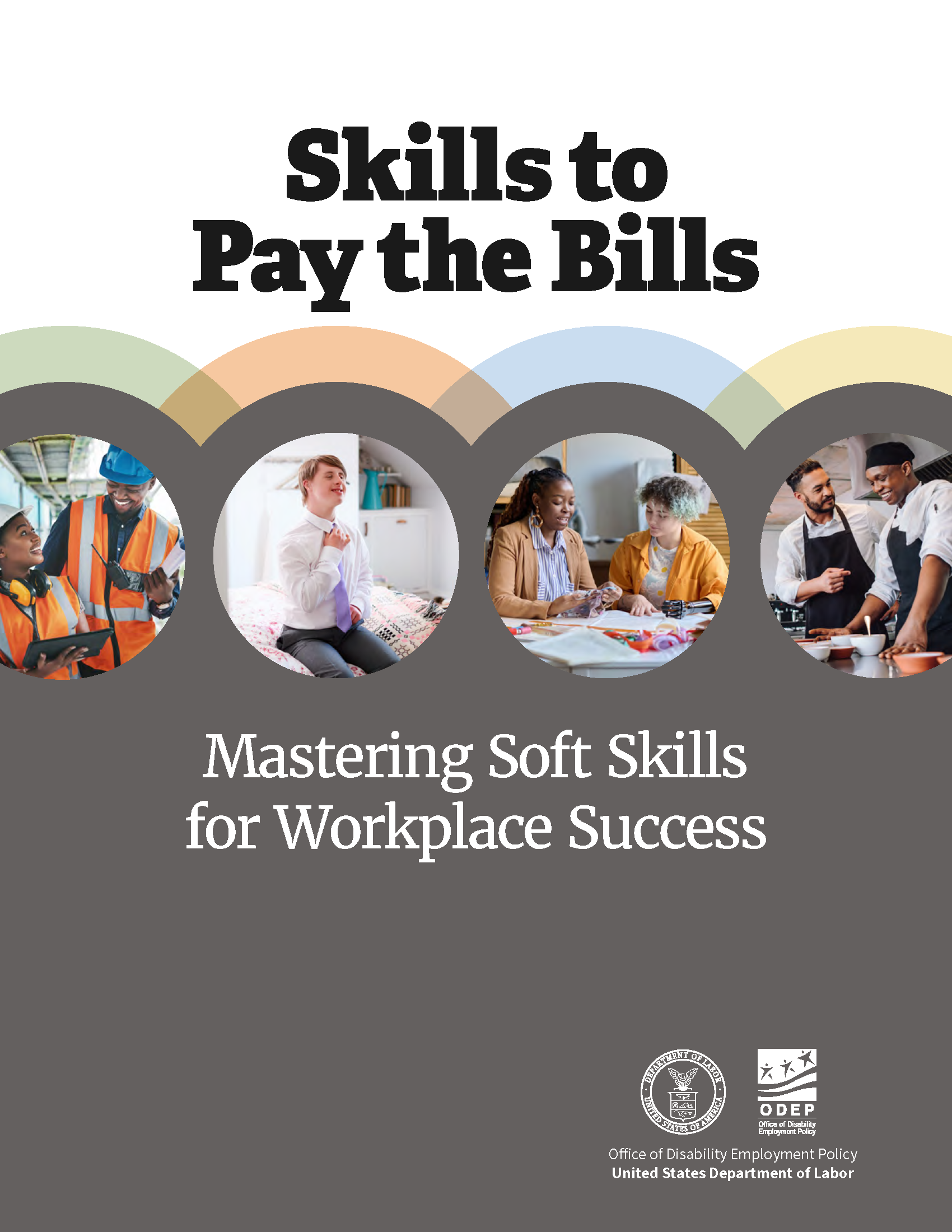"Skills to Pay the Bills: Mastering Soft Skills for Workplace Success" is a curriculum developed by ODEP focused on teaching "soft" or workforce readiness skills to youth, including youth with disabilities. Created for youth development professionals as an introduction to workplace interpersonal and professional skills, the curriculum is for young people (14-21) in both in-school and out-of-school environments. The basic structure of the program comprises modular, hands-on, engaging activities that focus on six key skill areas: communication, enthusiasm and attitude, teamwork, networking, problem solving and critical thinking, and professionalism. The program is currently being updated.
Introduction Materials

- Updated Facilitator Guide [Coming Soon]
- Order the Video Series on DVD
- View en Español
The activities in this section will not only help participants practice and recognize how they provide information to others, but also help them consider how others may prefer to receive information. It is important to reinforce with participants that communication skills involve give and take — and that they can be learned and strengthened over time.
The activities in this section seek to teach participants about the importance of enthusiasm and a positive attitude in the workplace. Participants will hear strategies for turning negative thinking into positive thinking and displaying and discussing enthusiasm during an interview and on the job.
The activities in this section seek to teach participants about the importance of teamwork to workplace success and the specific role each individual on a team may play. Participants will learn about positive teamwork behavior and discover how their own conduct can impact others on a team.
The activities in this section focus on the process of networking and its relevance and importance to career development. Participants will learn about taking initiative and overcoming fear, informational interviewing, as well as potential guidelines to consider when using social networks, texting and email for networking purposes.
The activities in this section focus on learning how to solve problems in a variety of ways in the workplace. Participants will hear about how to properly tell the difference between criticism, praise and feedback, and reacting appropriately. The section will also review strategies for making ethical decisions, solving problems on a team with others, and learning how to take into account others' perceptions when assessing actions or statements in the workplace.
The activities in this section focus on each of the five individual soft skills presented in this publication (communication, enthusiasm/attitude, teamwork, networking and problem solving/critical thinking), but in a broader framework. This is because professionalism is not one skill but the blending and integration of a variety of skills.
- A Word About Social Networking [PDF]
- In Their Own Words [PDF]
